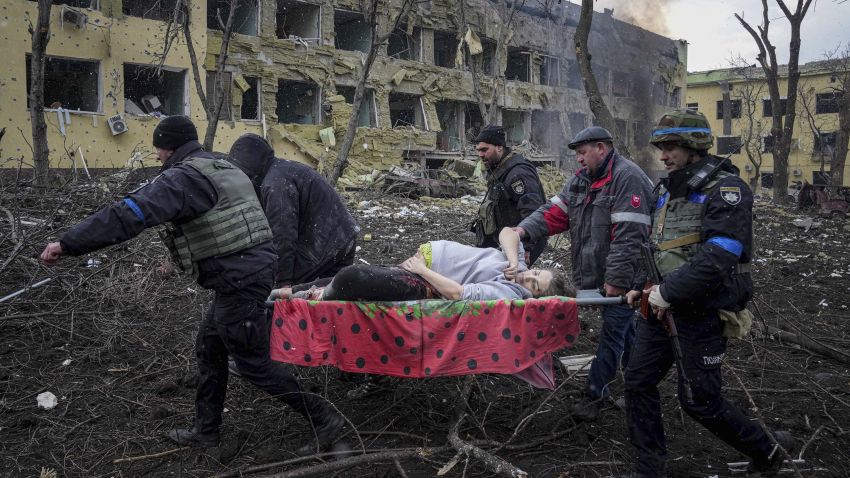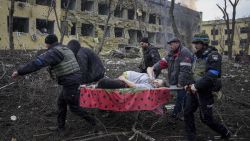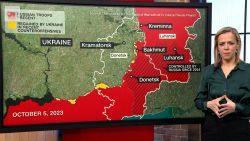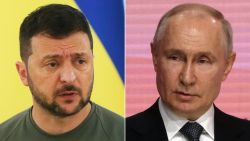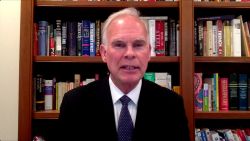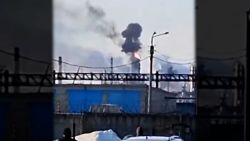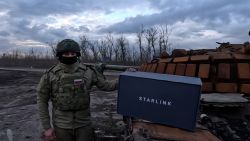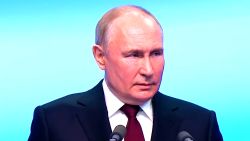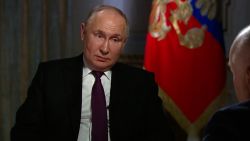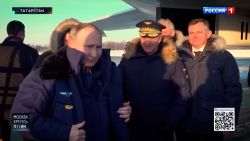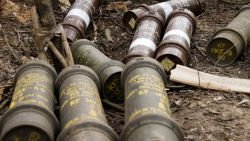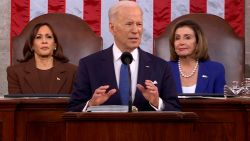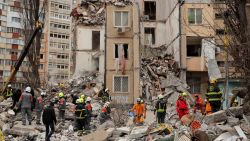Editor’s Note: Dr. Hamza al-Kateab is an activist, public health advocate and the co-founder of the Action For Sama campaign. He featured in the award-winning documentary “For Sama,”, filmed and directed by his wife, Waad al-Kateab. The views expressed in this commentary are their own. Read more opinion articles on CNN.
I will never forget the first time I saw Russian warcraft in the skies above Aleppo. It was September 2015, I was in my garden with my wife Waad and a friend when we saw three Russian aircraft flying over together, launching a missile attack. I knew at that moment that everything was about to change.
As a Syrian doctor and former hospital director in Aleppo, I know exactly what it means to be a direct target for the Russian forces.
The war crimes that are being committed in Ukraine right now are, unfortunately, nothing new. They are no coincidence. Attacks on healthcare facilities are a strategic play by Russian and Russian-backed Syrian regimes and they have been attempted, developed and repeated for at least the past 11 years.
When the uprising in Syria began in March 2011, I was living in the western part of Aleppo. But when the eastern part of the city was declared a non-governmental area the following year, I moved there and founded a new hospital.
Managing a hospital while knowing that you are the main target is a huge dilemma. The more accessible the hospital is, the easier it is to be attacked. In Aleppo, everyone knows that the hospitals are the most dangerous places to be in, or nearby.
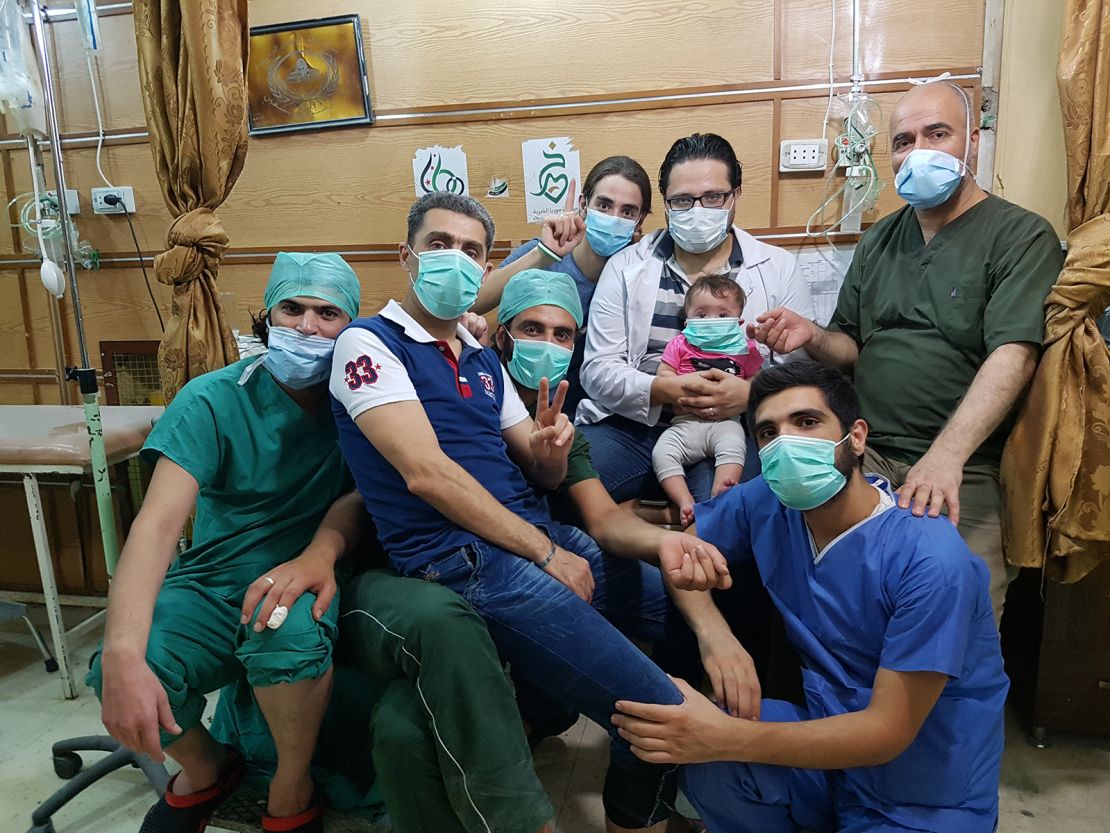
We had a saying that living near the frontlines is much safer than being at the hospital. We had patients refusing to be admitted for treatment saying, “You know doctor, it is too dangerous to be here for five days, can I take the medications at home?”
By attacking hospitals and medical centers, it makes it impossible for people to live in a city. How can people stay when the places they rely on for their health and safety have become a direct target? These attacks force people out. And most importantly, it is an attempt to break their resilience. It is an attempt to break their hope.
However, despite all of these horrors, we never wanted to leave. We wanted to stay in our country and keep fighting for our freedom and democracy.
It came to an end when the Syrian regime and its supporters (including Russia) managed to siege Aleppo for six months. They destroyed eight out of nine hospitals in the city. We became trapped in a space of less than two square kilometers.
An agreement took place between Russia and Turkey to evacuate whoever wanted to leave the city. Knowing that if we stayed, we would be arrested, it wasn’t an evacuation for the 35,000 people who left the city — it was a forced displacement.
Through all the days I have lived in Aleppo, I never dreamed of becoming a refugee – it wasn’t part of my plan at all.
However, today, as I write this from London where I live with my family under refugee status, five years on from being in Aleppo, I still question many decisions I took during the four years I managed the hospital. Was I to blame for changing that nurse’s shift when he was then killed at the hospital? Was I to blame for not being there 24/7, watching out for the patients and the staff? Was I blamed in the first place for starting a hospital in a warzone where I know the staff and the patients would be a target?
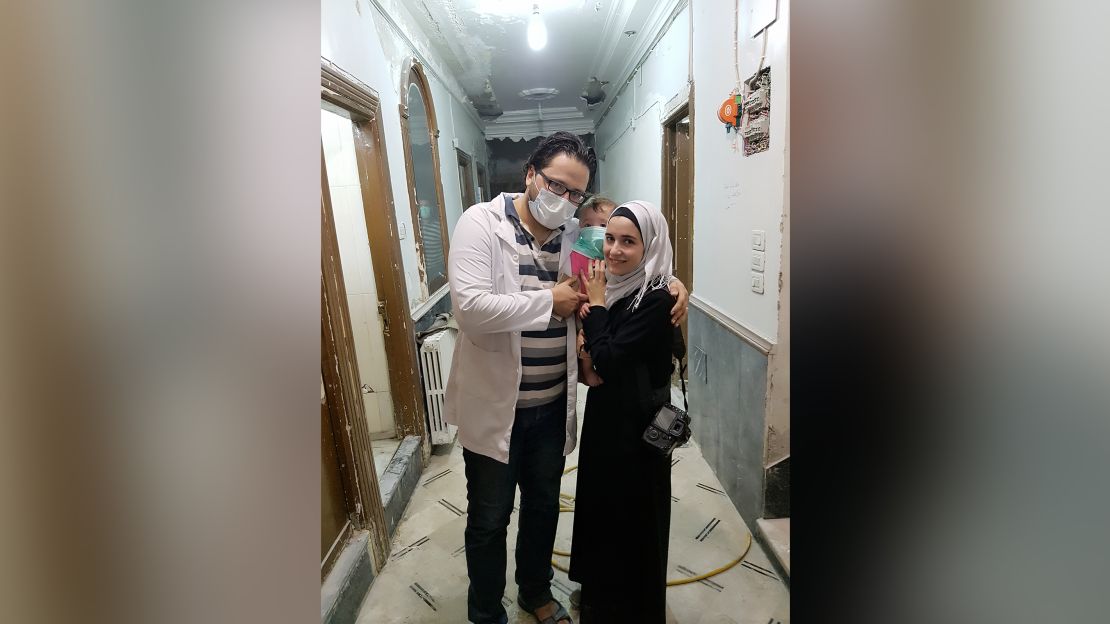
I still remember the echoes of the patients screaming out in pain in the hospital corridors. I can still hear the seven-year-old boy crying for us not to amputate his crushed leg, while I told the nurses to prepare him for an operation. I still remember the shouts and moans of mothers leaned over their little children’s dead bodies.
But I also remember the words of gratitude from a child while they were being discharged from the hospital. I remember the pregnant woman who was injured, and we saved both her life and the life of her baby. And I remember the way the civilians in eastern Aleppo looked at us as the only hope for them when their houses were being attacked and they were under siege.
All of that makes me want to go back to Aleppo to fulfill my purpose. All of that would make me want to stay in Aleppo under the same circumstances for another 11 years. And the only way for me to cope is to keep trying to hold the perpetrators accountable.
“Stop Bombing Hospitals.” This was the message – written on signs in English, Russian and Arabic – that we delivered in a demonstration outside the Russian Embassy in London last week. It was a message not only to the Russians, but also to the public passing by, commuting to and from work. We have been trying to deliver this message for a long time – for years, in fact – in the hope that the world will act.
There was another time, when I still inside Aleppo, trying to deliver this message to the world. I think of the health workers in Ukraine now, suffering from what we have been always trying to advocate against.
A few days after that demonstration outside the Russian embassy, we took to the streets of London again for the 11-year anniversary of the Syrian uprising, on March 19. “Putin is a war criminal. Putin is a killer,” we shouted over and over. There we were chanting the same chants we have roared inside and outside our country for years. Shouting for a free Syria, demanding that politicians listen, take notice and take action.
As we reached the gates of Downing Street, we were joined in chorus by people from a Ukraine march. Our voices grew louder. At first, I felt sad and heartbroken. As Syrians, we have been through this for 11 years, with half of our population now displaced.
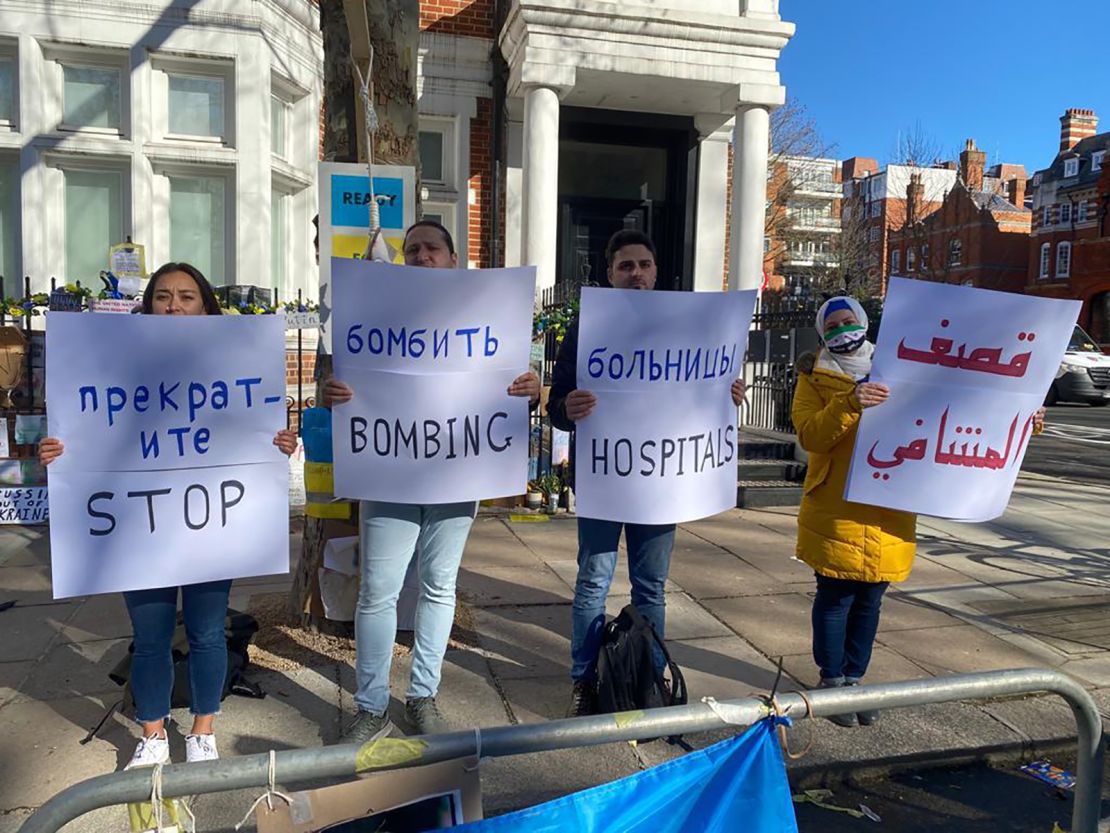
Seeing the Ukrainians chanting to free Ukraine and condemning the war crimes of Putin, I felt sad because there seemed a hope that this would end soon and that the Russians would stop.
But we know how long this war could continue for. I shouted out loud, “Free Syria! Free Ukraine!”; “From Syria to Ukraine, all together we will win”; “From Syria to Ukraine, occupiers have no place.” With voices of the Syrian diaspora and refugees mixed with Ukrainian ones, I began to feel like we are not alone in this. It was a beautiful moment of solidarity among humans united in their fight against a shared enemy, and united in shared hope for the future of Ukrainians, Syrians and all those under the threat of Putin’s forces.
Now is not a time for us to say, “We told you so.” Now is the time to support the people of Ukraine. It is devastating that this had to happen, for the world to take notice of what this criminal regime is capable of, and I sincerely hope that this will be the last time. I hope the world will say once and for all, “Never again.”
And to my fellow doctors, nurses and medical professionals in Ukraine, I say, expect no red lines in this war. There will be no ethics, no manners, from your Russian enemy. This is a new era of providing healthcare during the conflict, where the normal health policies become useless.
Find suitable new guidelines to discharge patients as soon as possible. Limit the gathering of many patients at the same location – try to distribute the services you provide to many locations instead of one. The most important thing is to remember you are not only providing healthcare – you are the heart of your city’s resilience.
Get our free weekly newsletter
Your attackers will try to break you, they will try to make you suffer. But remember that being alive is your act of resilience. Each person matters. One healthcare provider can make all the difference. Do not let them break your will. Do not let them break your resilience.
